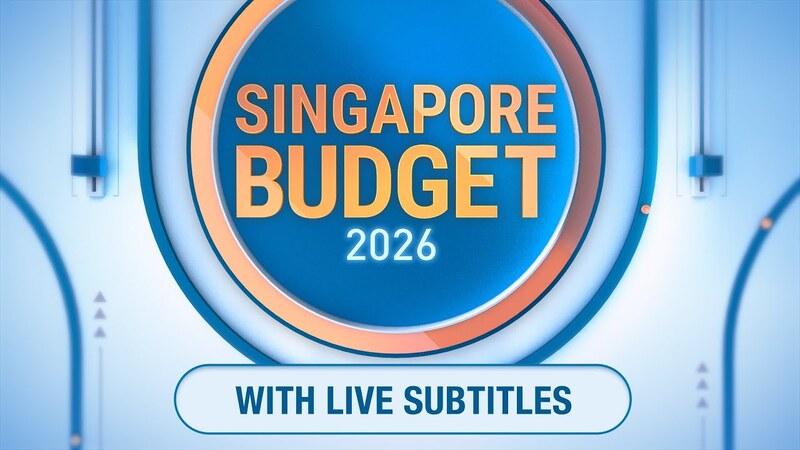What is Generative AI? How ChatGPT-5 is Reshaping Work in Singapore
Generative AI has quickly moved from being a buzzword to becoming one of the most transformative technologies of our time. In Singapore — a country ranked second globally in AI readiness — the rise of advanced AI systems like ChatGPT-5 is already changing how companies operate, how workers upskill, and how the future of jobs is defined.
But what exactly is Generative AI, and why does it matter so much to Singapore’s workforce?
What is Generative AI?
Generative AI refers to a type of artificial intelligence that can create new content — from text, images, and code to music and even product designs. Unlike traditional AI, which mainly analyses data, generative AI goes a step further by producing original outputs based on prompts.
For example:
- ChatGPT-5 can write emails, generate business plans, and even create code.
- Image generators like DALL·E can produce marketing visuals or product prototypes.
- Music and video AI tools can compose jingles or training materials.
This makes generative AI a powerful tool not only for tech experts, but also for HR, marketing, customer service, finance, and beyond.
Why Generative AI Matters to Singapore
1. Economic Growth Potential
According to studies, AI adoption could add nearly US$1 trillion to Southeast Asia’s economy by 2030. With Singapore already a regional AI hub, businesses that embrace AI early will gain a competitive edge in productivity, innovation, and cost efficiency.
2. Reshaping Workforce Skills
AI is not about replacing workers, but rather about reshaping roles. Routine tasks like drafting reports or handling customer queries can be automated, freeing employees to focus on higher-value work such as strategy, creativity, and leadership.
3. Singapore’s Policy Support
The government has invested heavily in AI strategy, infrastructure, and skills development, ensuring workers and companies are prepared. From AI-focused grants to SkillsFuture upskilling pathways, there are opportunities for both employers and employees to leverage AI responsibly.
ChatGPT-5: A Game-Changer for Work
The release of ChatGPT-5 signals how fast generative AI is evolving. Compared to earlier versions, ChatGPT-5 offers:
- Greater accuracy and reasoning power — useful for legal, finance, and HR policy drafting.
- Better multi-language support — a big advantage for Singapore’s diverse, multilingual workforce.
- Personalised responses — making it more effective in customer service and talent engagement.
For Singapore companies, this means HR teams can use ChatGPT-5 for job description writing, candidate screening support, employee training modules, and even policy translations for foreign hires.
For workers, it means learning how to work with AI tools is now a key part of staying competitive.
The HR & Recruitment Impact
Generative AI is already changing how workforce management is done in Singapore:
- Recruitment Efficiency: AI can help shortlist resumes, design candidate assessments, and even conduct first-round interviews through chatbots.
- Employee Development: AI tools personalise learning journeys, suggesting courses and training paths aligned with individual goals.
- Workplace Productivity: ChatGPT-5 can automate routine documentation, freeing HR teams to focus on culture-building and strategic initiatives.
What Companies in Singapore Should Do
- Embrace, don’t resist: Companies that integrate generative AI early will attract both tech-savvy talent and innovation opportunities.
- Upskill staff: Invest in AI literacy, so employees know how to use these tools responsibly.
- Balance innovation with ethics: Protect employee privacy, ensure fairness in AI-driven recruitment, and follow MOM/PDPA guidelines.
What Workers in Singapore Should Do
- Get AI-ready skills: From prompt engineering to data literacy, building familiarity with generative AI will future-proof careers.
- Use AI as a productivity partner: Workers who learn to collaborate with AI will see greater efficiency and career growth.
- Stay adaptable: As AI reshapes industries, flexibility and continuous learning are more valuable than ever.
Frequently Asked Questions (FAQ): Generative AI & ChatGPT-5 in Singapore
Q1: Will AI take away jobs in Singapore?
Not entirely. AI will automate tasks, but it will also create new job roles in data, ethics, design, and AI operations.
Q2: Which industries in Singapore benefit most from generative AI?
Finance, healthcare, manufacturing, HR, and digital marketing are seeing the fastest adoption.
Q3: Is ChatGPT-5 reliable for HR and recruitment tasks?
It’s a strong support tool, but companies should use it alongside human judgment to ensure fairness and accuracy.
Q4: How can workers in Singapore start learning AI skills?
Through SkillsFuture-funded courses, online platforms like Coursera, and employer-led training programs.
Conclusion: AI is Here, and Singapore is Ready
Generative AI is no longer a distant concept — it’s already transforming how we work. For Singapore companies, adopting tools like ChatGPT-5 is not just about efficiency, but about staying competitive in a global talent market. For workers, learning to work alongside AI is the next step in career growth.
The future of work in Singapore is AI-powered, human-led, and innovation-driven.
🔹 Want to hire AI-skilled talent to future-proof your workforce?
Connect with Reeracoen today
🔹 Looking for jobs where AI skills are in high demand?
Browse opportunities here
Disclaimer:
The information provided in our blog articles is intended for general informational purposes only. It is not a substitute for professional advice and should not be relied upon as such.
While we strive to provide accurate and up-to-date information, the ever-evolving nature of certain topics may result in content becoming outdated or inaccurate over time. Therefore, we recommend consulting with qualified professionals or experts in the respective fields for specific advice or guidance. Any actions taken based on the information contained in our blog articles are solely at the reader's discretion and risk. We do not assume any responsibility or liability for any loss, damage, or adverse consequences incurred as a result of such actions.
We may occasionally provide links to external websites or resources for further information or reference. These links are provided for convenience and do not imply endorsement or responsibility for the content or accuracy of these external sources. Our blog articles may also include personal opinions, views, or interpretations of the authors, which do not necessarily reflect the views of our organisation as a whole. We encourage readers to verify the accuracy and relevance of information presented in our blog articles and to seek professional advice when needed. Your use of this website and its content constitutes acceptance of this disclaimer.
References





